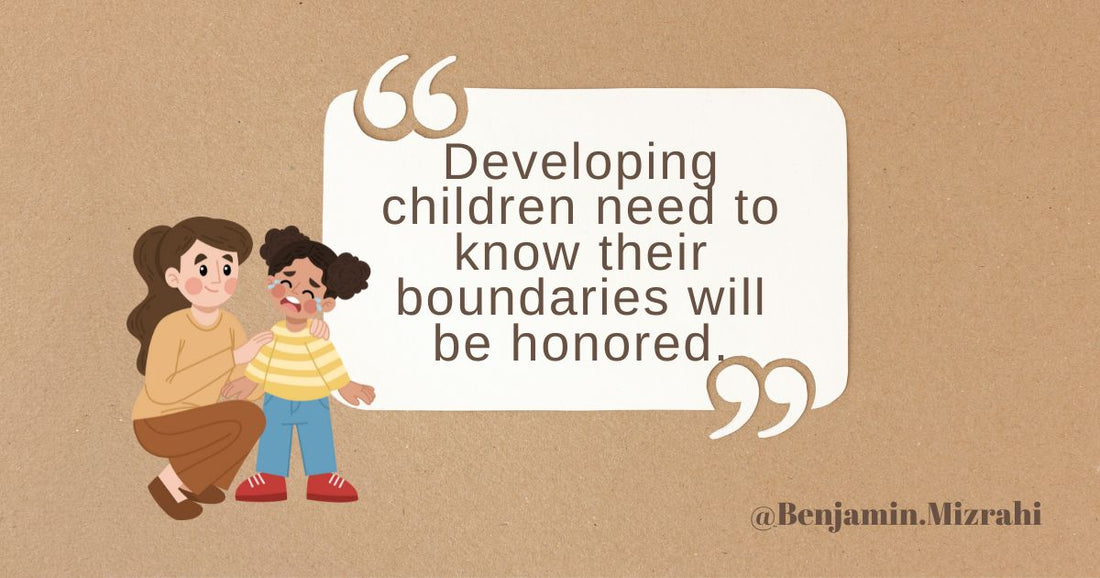
Honor Your Children's Boundaries
Share
It's critical that our children know that they can disagree. It's imperative that they know they can experiment with boundaries without being cutoff. To be clear, when your child misbehaves, it's okay to be upset; however, it's not okay to emotionally disconnect. There's a difference between disconnecting from your child and remaining connected and managing the behavior.
Emotional disconnection is withdrawing without explanation or avoiding your child whereas remaining connected will involve an explanation for what’s happening without becoming hostile, aggressive, or withdrawn.
This pulling away and disconnection teaches our children some of their earliest lessons on boundaries. What they learn is that "I am only lovable when I behave." This child will then learn to fall in line and keep the peace. They will avoid disagreeing to keep the relationship. They may fear that setting boundaries will lead to loss of relationships.
A better approach to this is speaking about the behavior you're hoping to change or pointing out what you notice. Here are some examples:
"I see you're frustrated, but you still can't go outside right now."
"When you scream like that it hurts my ears. Lower the volume and I'll be able to hear you better."
They may persist. What should you do?
1. Hold your own boundary.
2. Tell them they are allowed to continue, but you'll have to remove yourself (obviously if safe).
3. Show them what it looks like to do this appropriately without yelling or using forceful behavior.
